Medical Writing is a quarterly publication that aims to educate and inform medical writers in Europe and beyond. Each issue focuses on a specific theme, and all issues include feature articles and regular columns on topics relevant to the practice of medical writing. We welcome articles providing practical advice to medical writers; guidelines and reviews/summaries/updates of guidelines published elsewhere; original research; opinion pieces; interviews; and review articles.
Medical Writing is listed in the following indexes:
Volume 34, 2025
Volume 33, 2024
Volume 32, 2023
Volume 31, 2022
Volume 30, 2021
Volume 29, 2020
Volume 28, 2019
Volume 27, 2018
Volume 26, 2017
Volume 25, 2016
Volume 24, 2015
Volume 23, 2014
Volume 22, 2013
Search
Links
Editorial Board
Editor-in-Chief
Co-Editors
Managing Editor
Victoria White
Deputy Managing Editor
Alicia Brooks Waltman
Associate Editors
Section Editors
AI/Automation
Biotechnology
Digital Communication
EMWA News
Freelancing
Gained in Translation
Getting Your Foot in the Door
Good Writing Practice
Pablo Izquierdo / Alison McIntosh
In the Bookstores
Publications
Medical Communications/Writing for Patients
Medical Devices
My First Medical Writing
News from the EMA
Pharmacovigilance
Regulatory Matters
Regulatory Public Disclosure
Louisa Ludwig-Begall / Sarah Kabani
The Crofter: Sustainable Communications
Veterinary Writing
Editors Emeritus
Layout Designer
Chris Monk





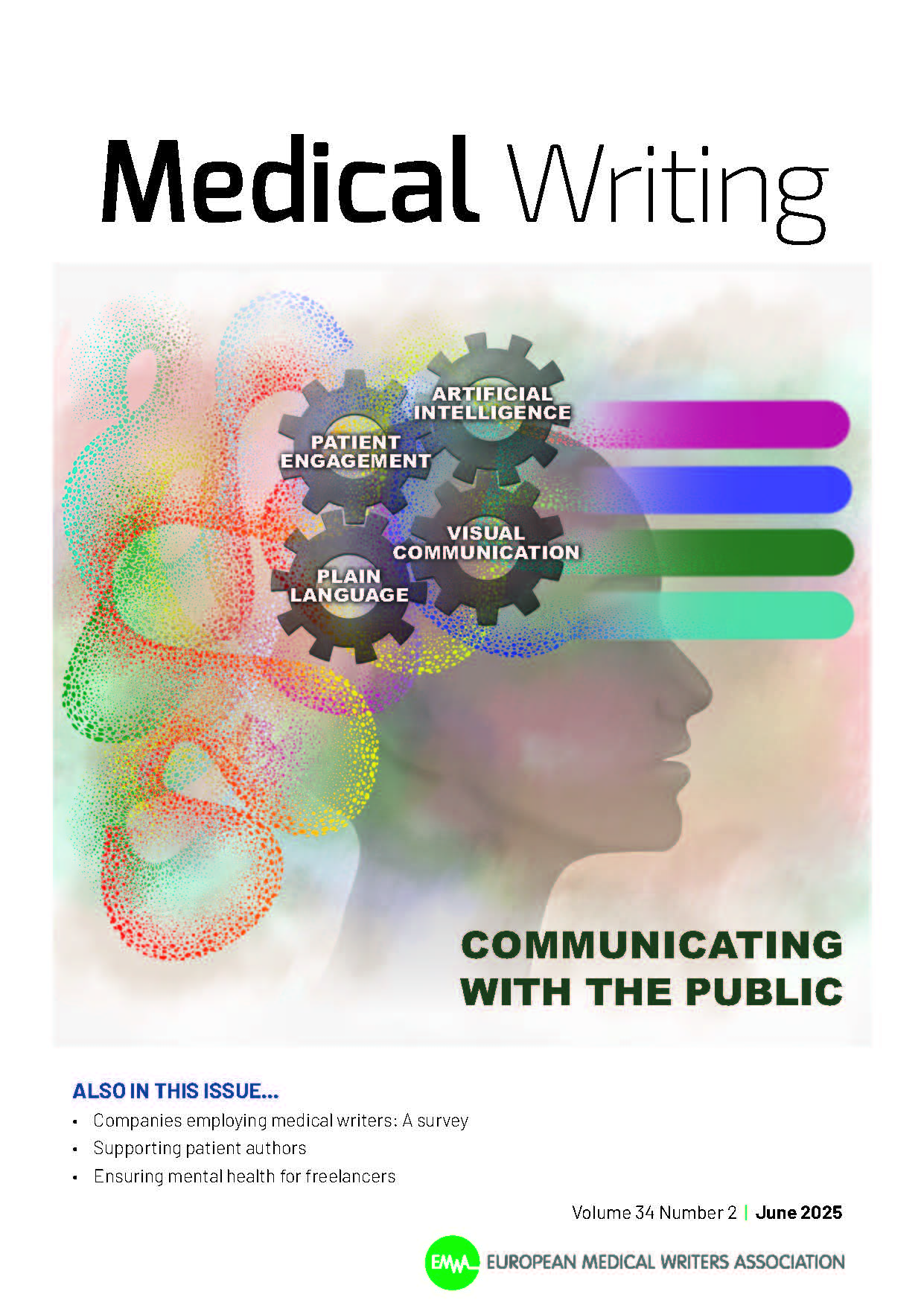
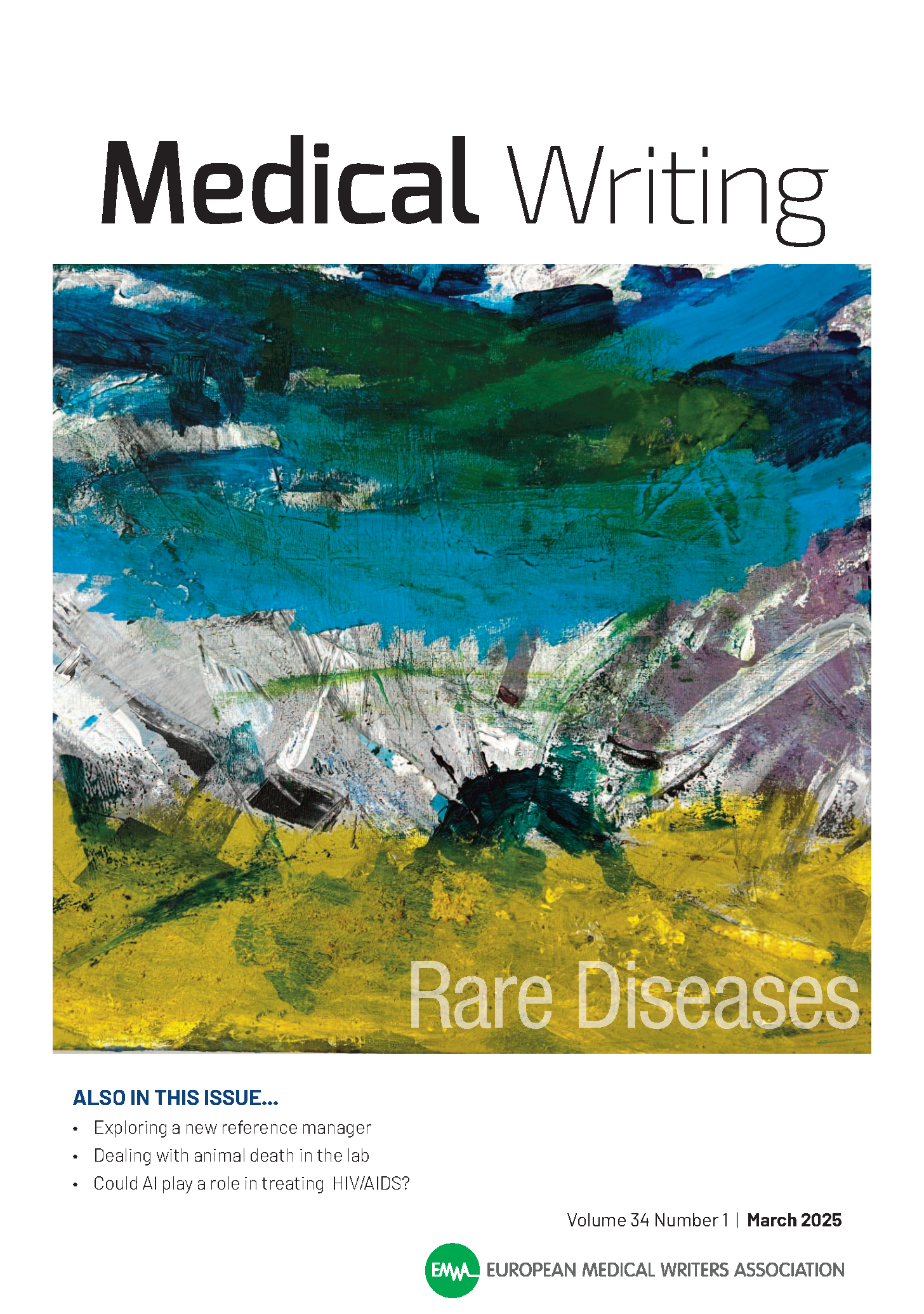

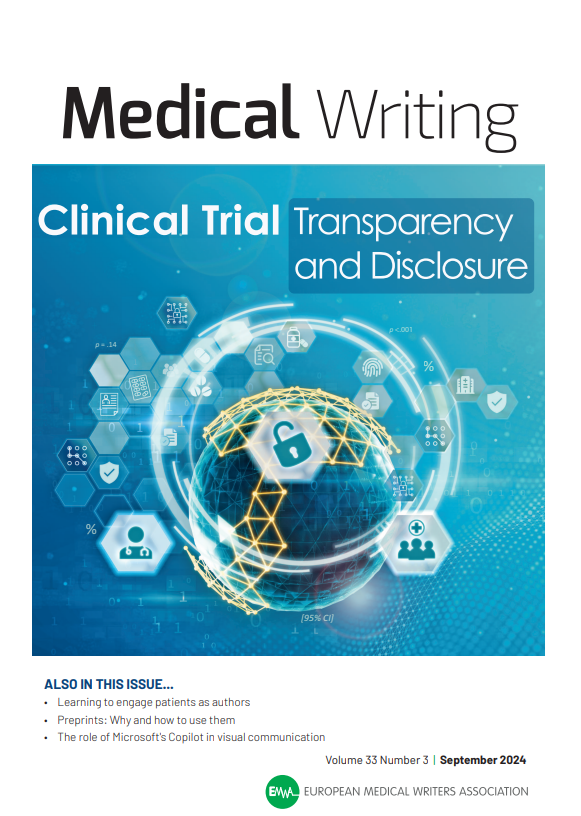
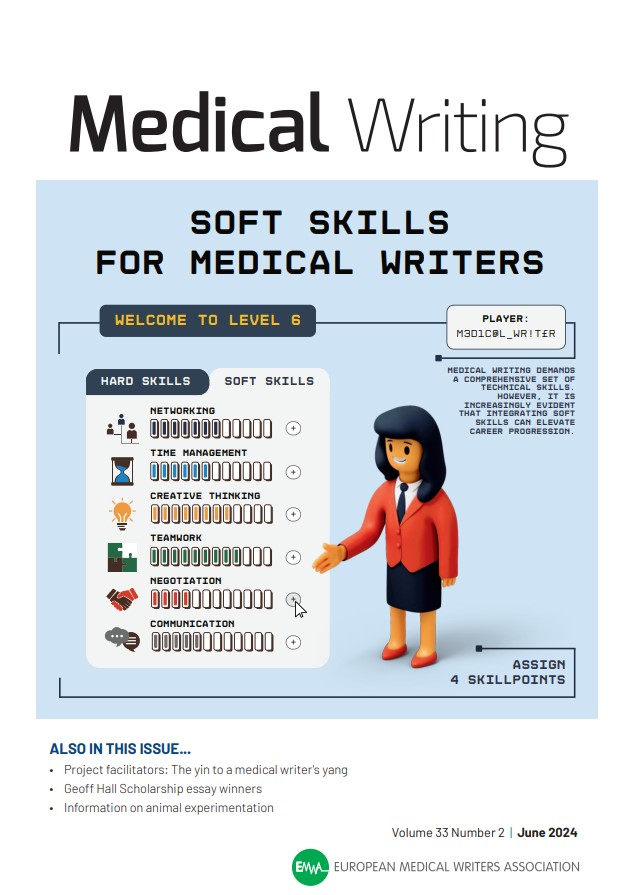
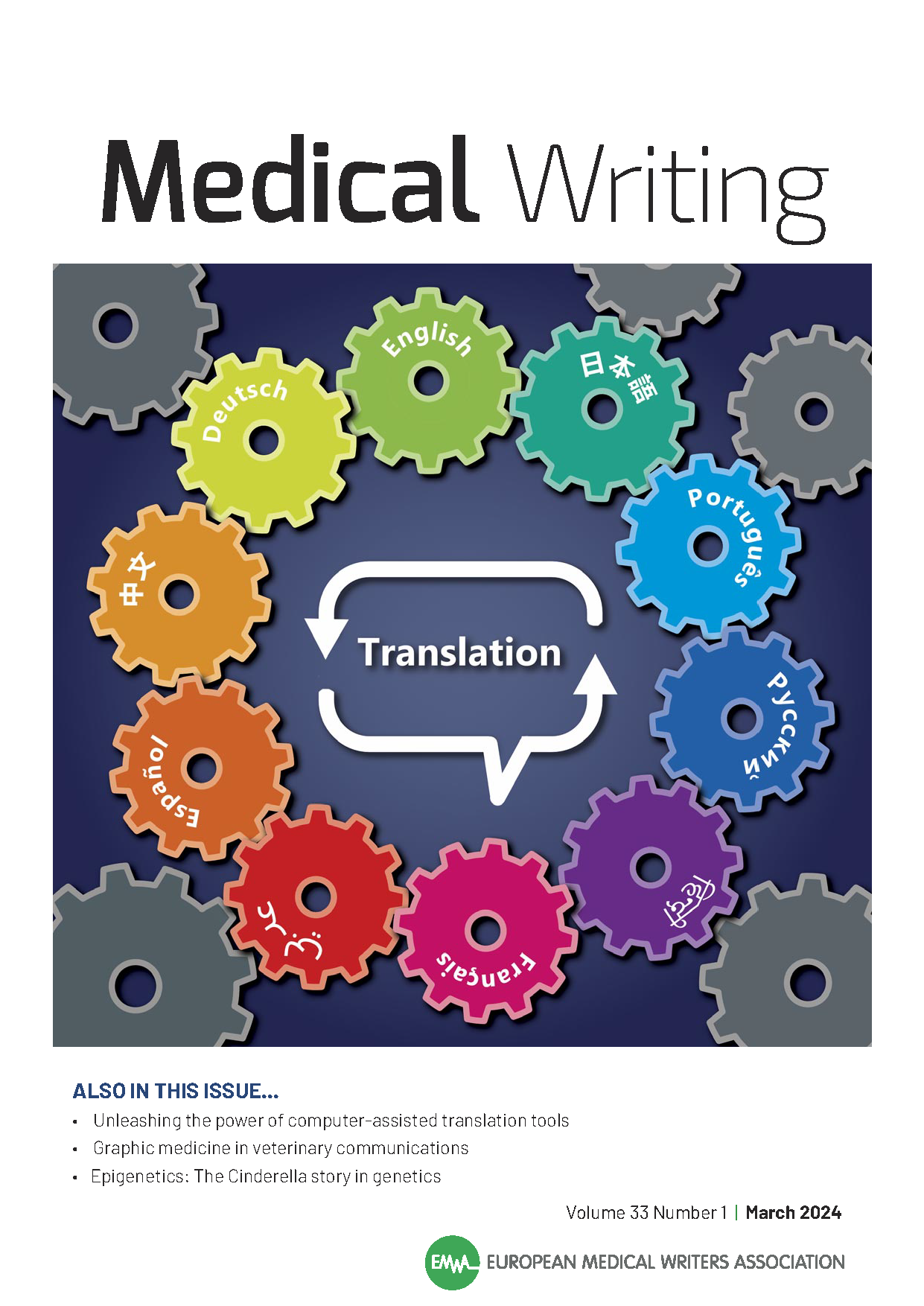
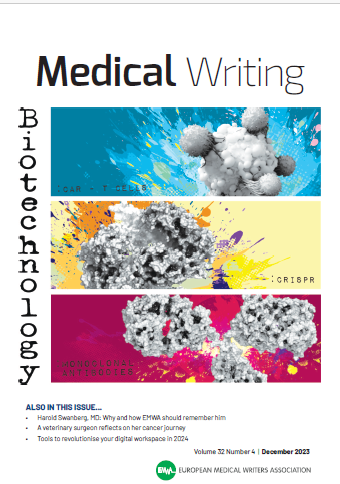
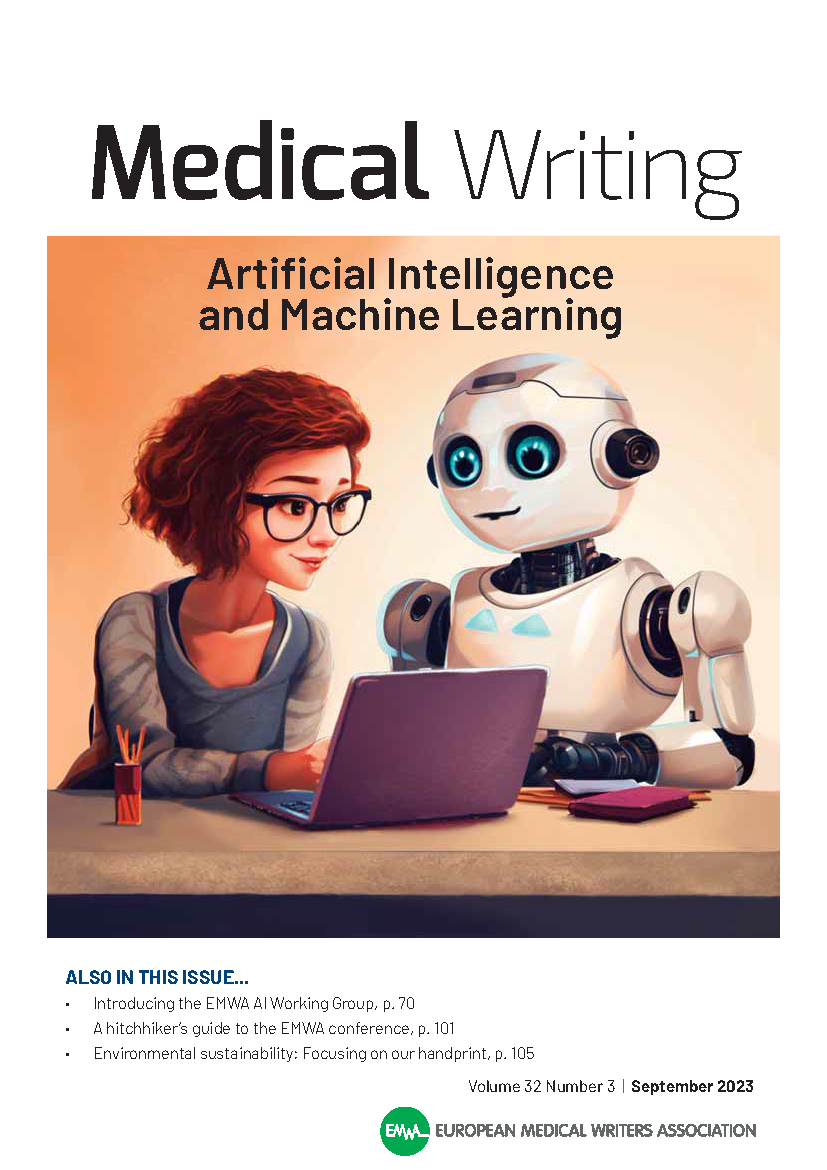

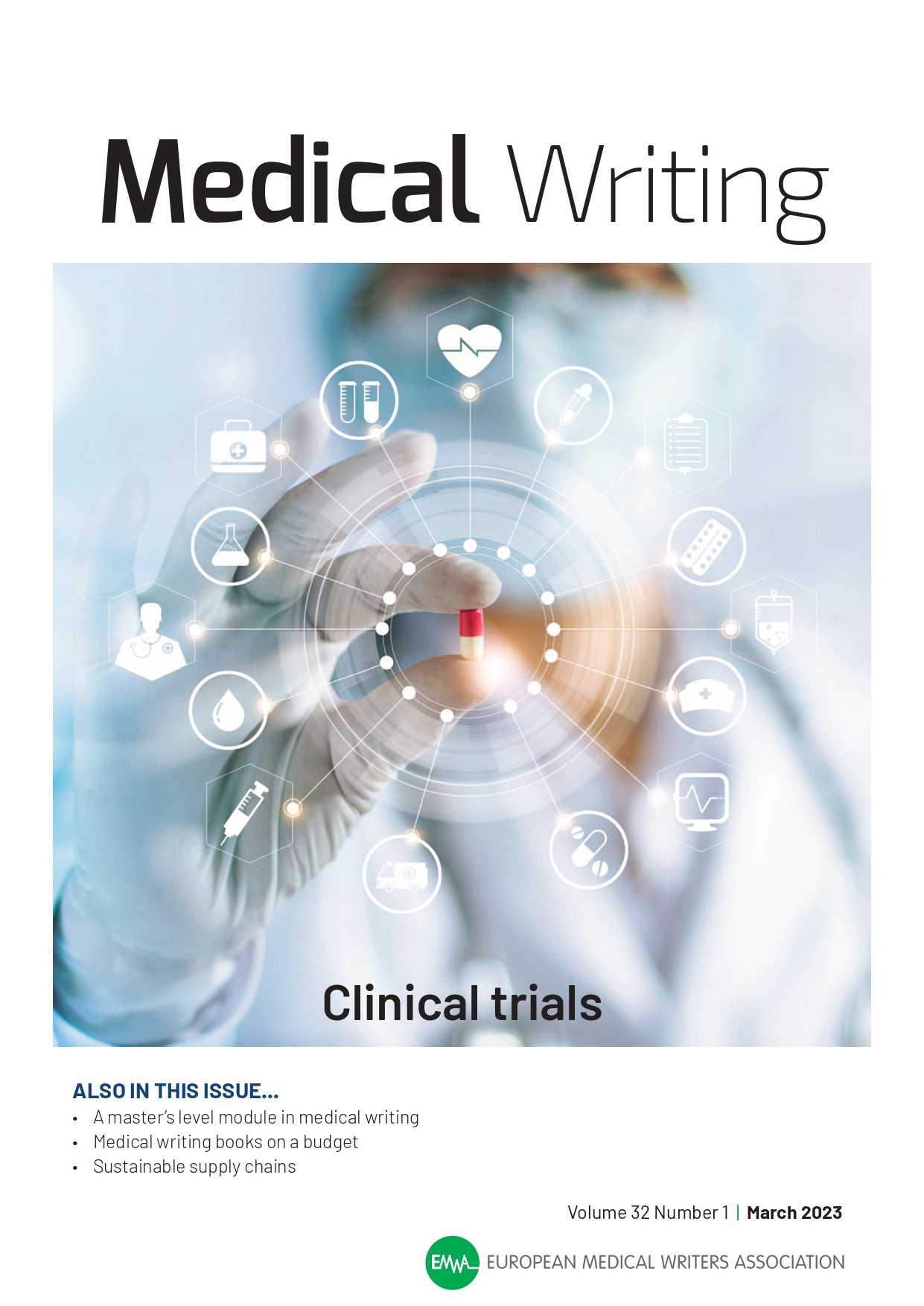
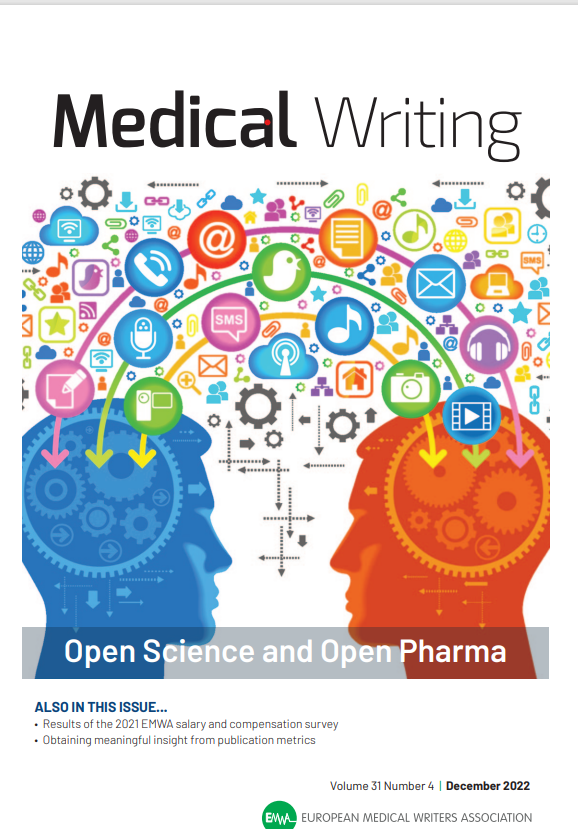
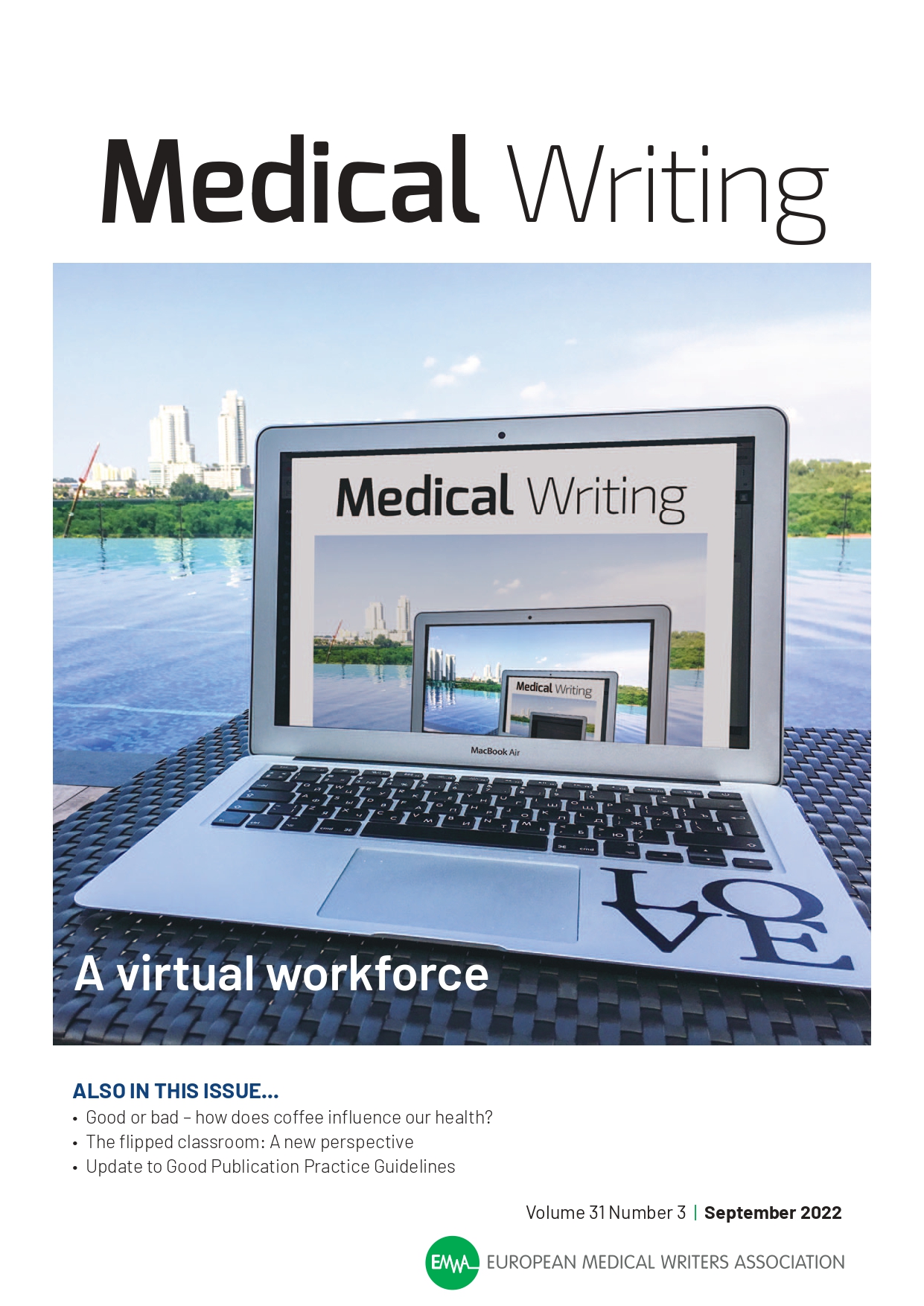

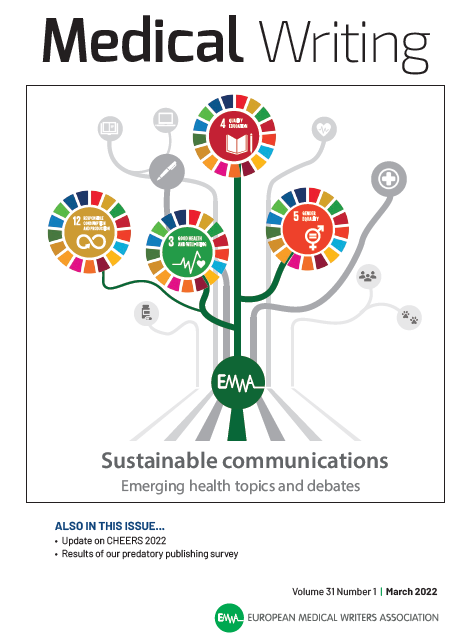
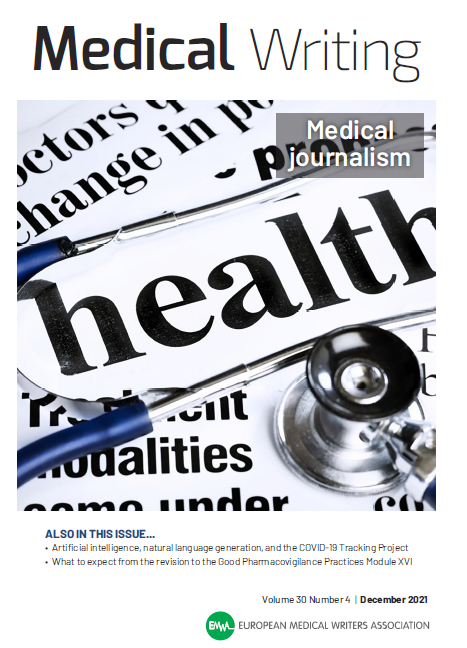
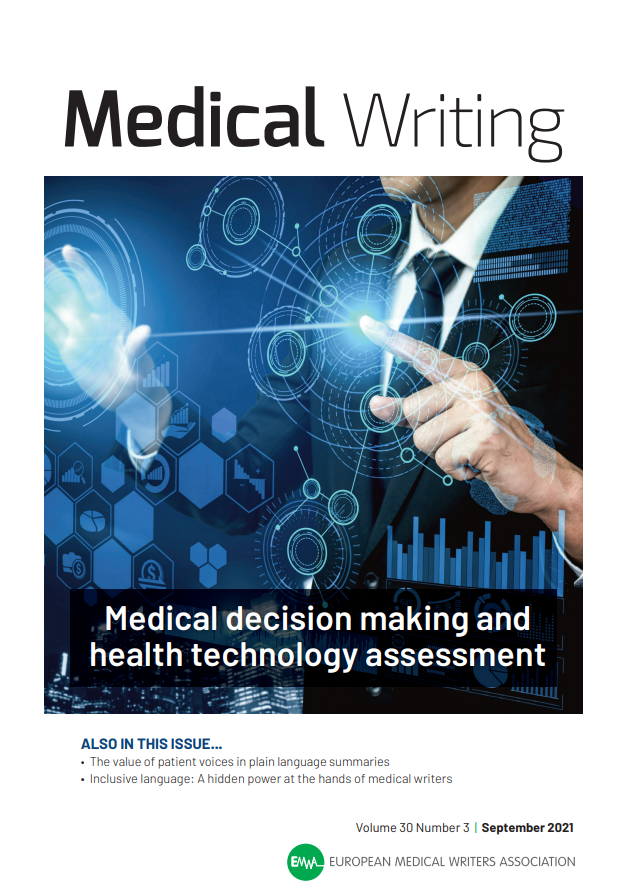
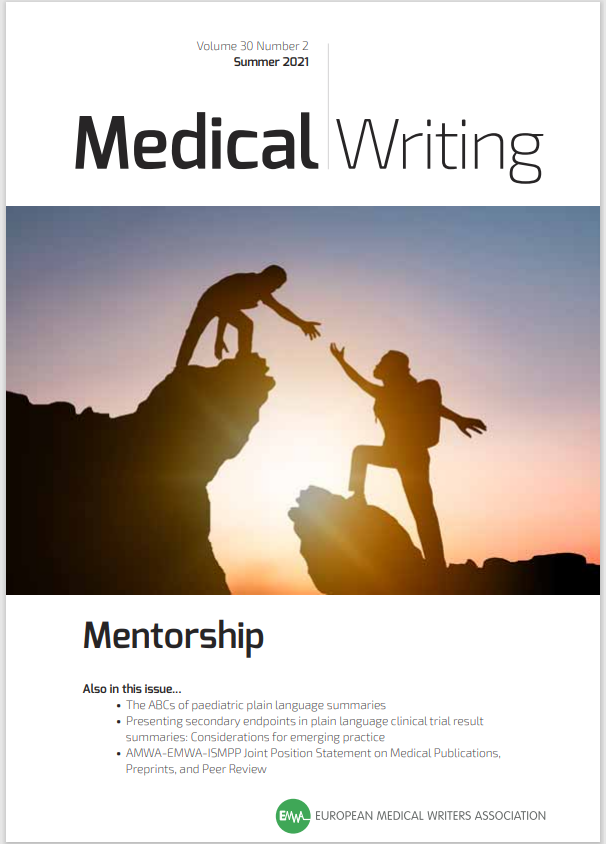

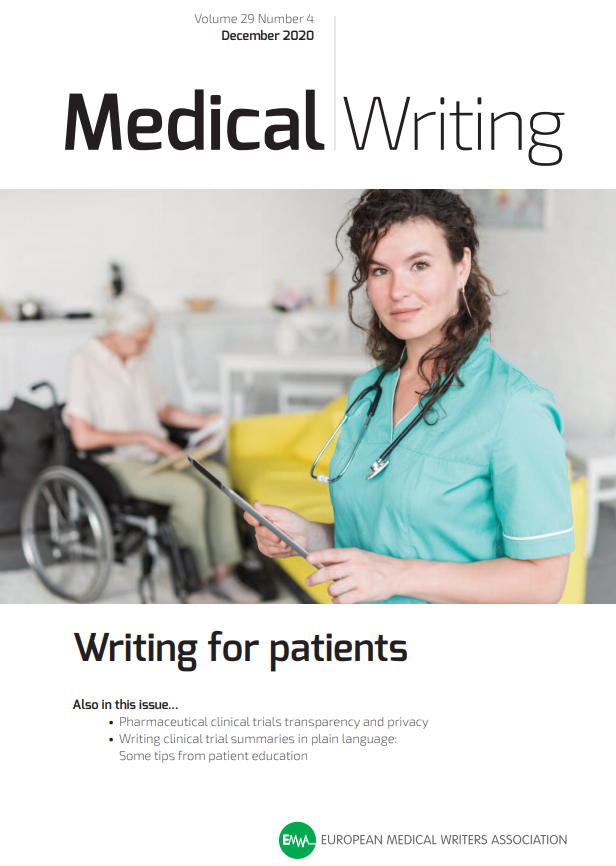
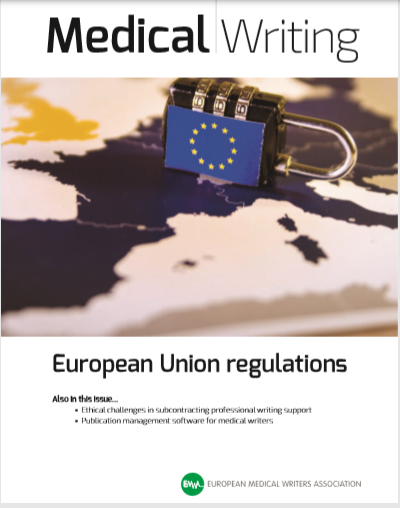
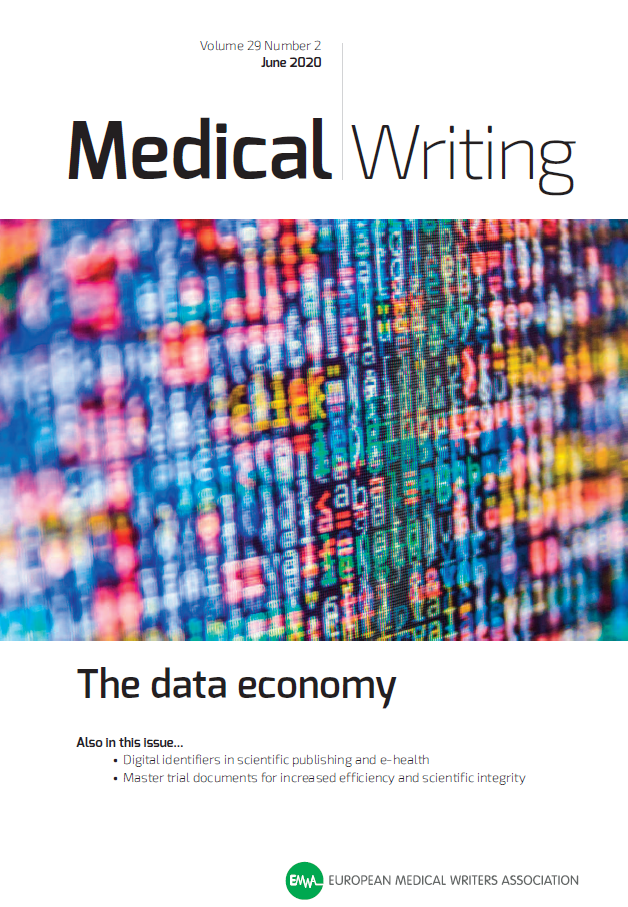
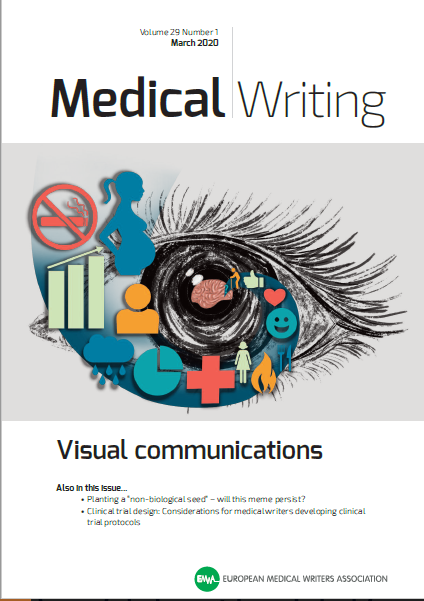
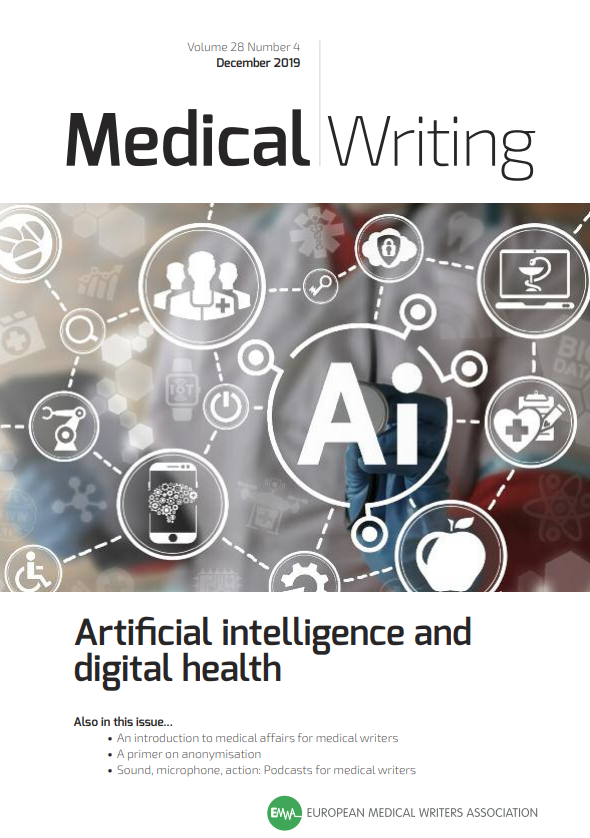

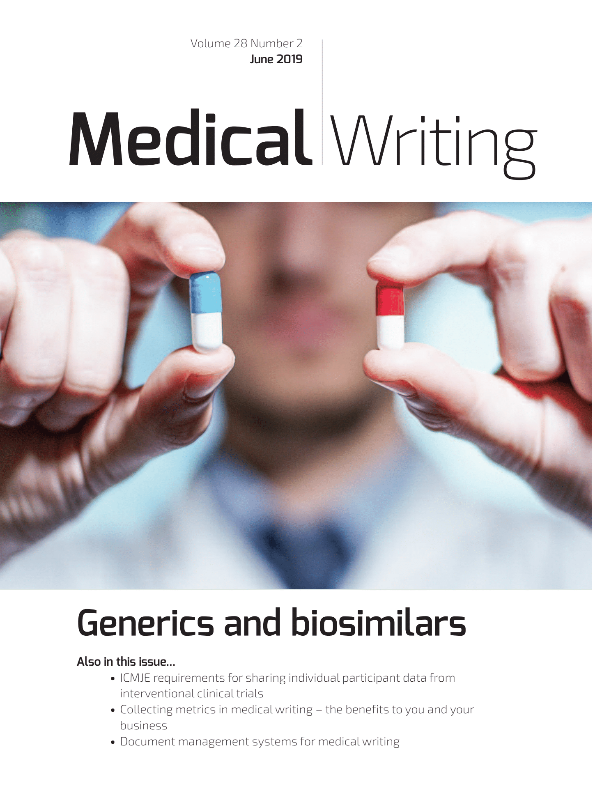

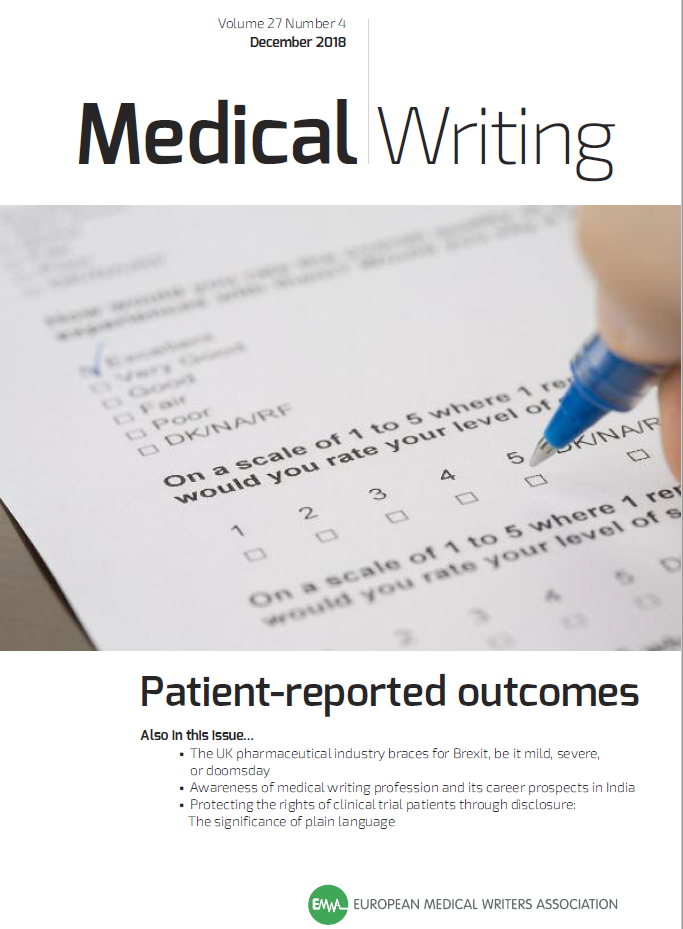
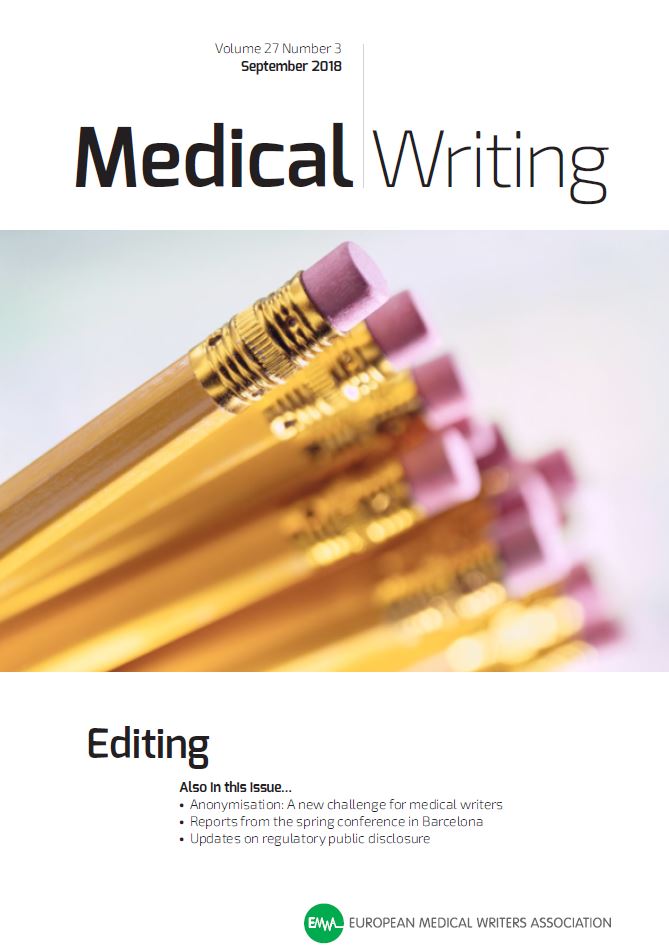
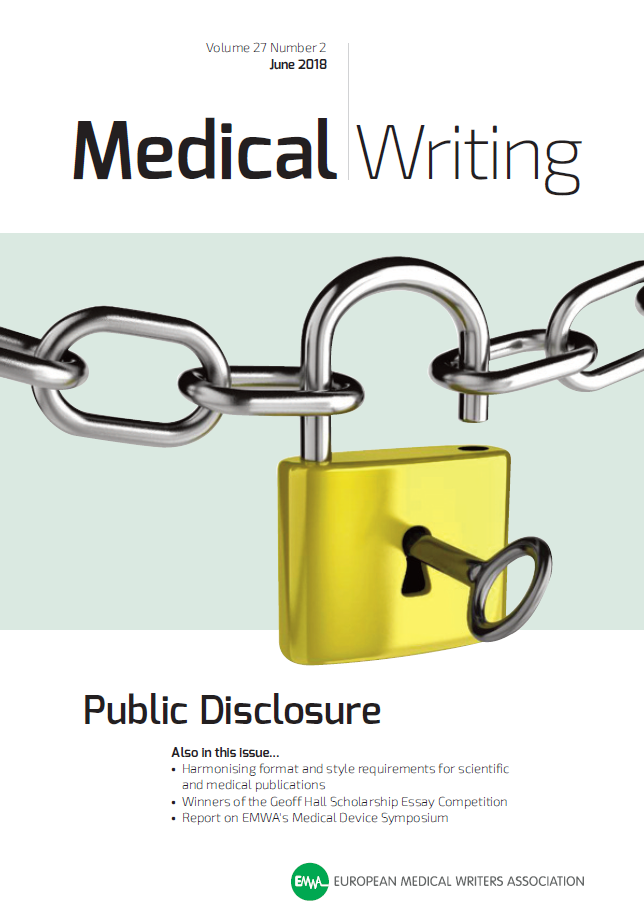
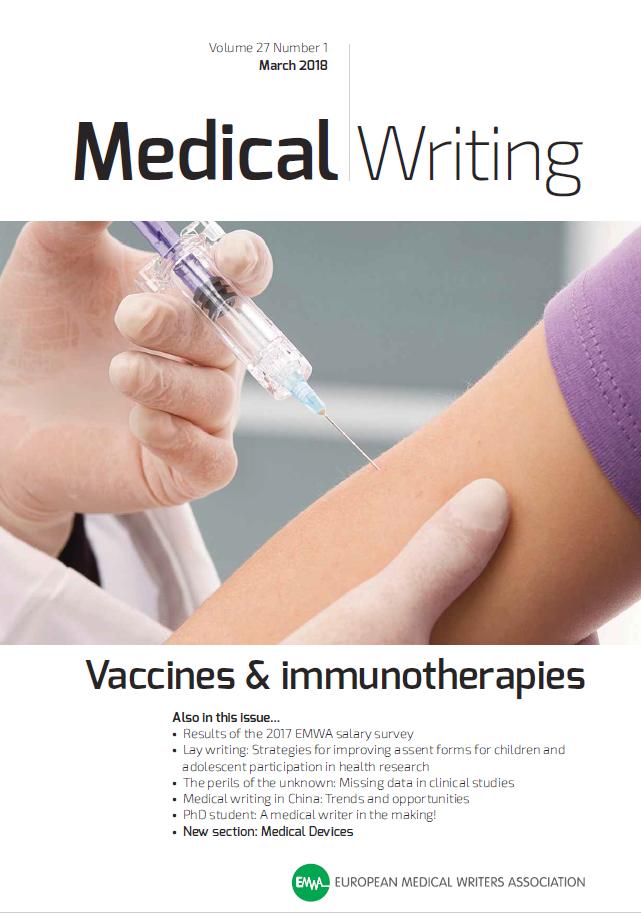



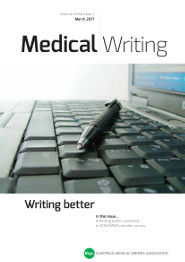
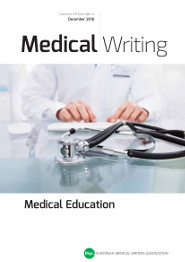
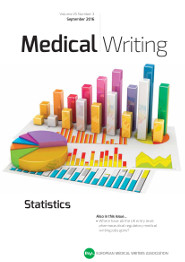
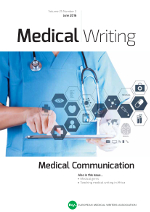
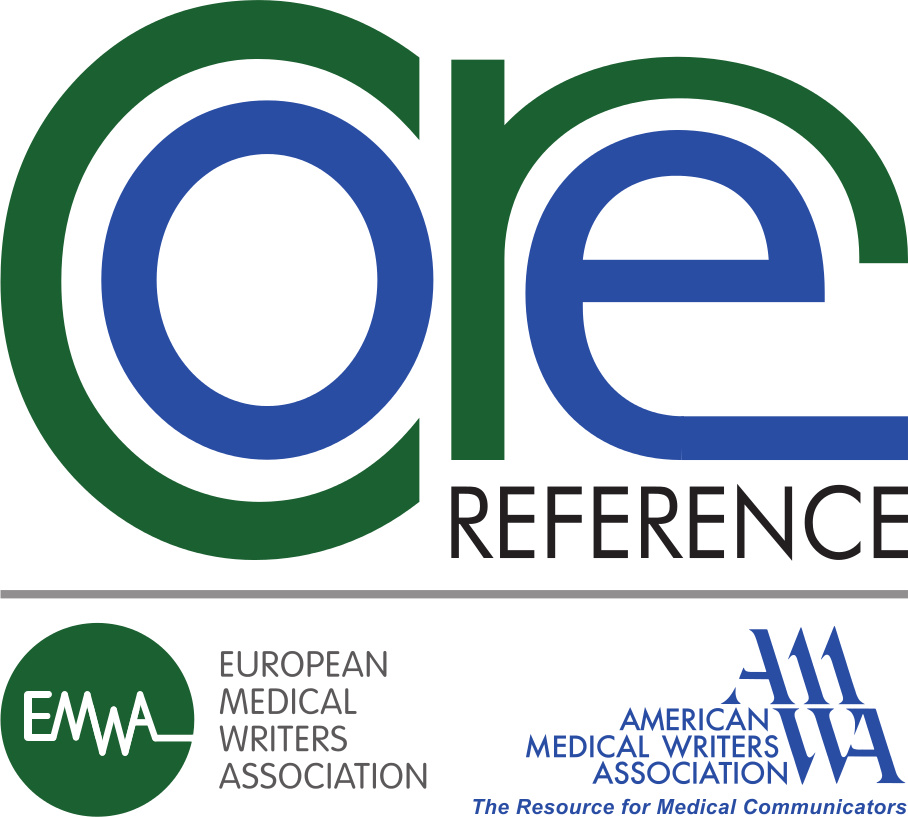


 Visit the EMWA website
Visit the EMWA website